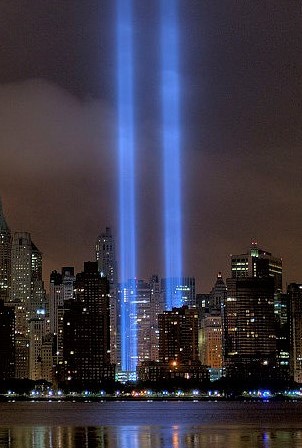Almost as soon as the planes struck their targets on September 11, there was renewed debate about a question Americans have grappled with since our country was born: How do we preserve the balance between personal liberty and collective security? There were immediate calls for loosened restraints on vviretapping and tighter controls on the citizenry. We should strengthen our laws,” said Attorney General John Ashcroft, “to increase the ability of the Department of Justice and its component agencies to identify, prevent and punish terrorism.” Which also means, of course, their ability to more easily and closely scrutinize the doings of you and me.
January 2011
In the early 1880s, a Maine-born inventor named Hiram Maxim, who had tried and failed to become a leading figure in the young electrical industry, met a fellow American in Vienna who told him, “Hang your chemistry and electricity! If you want to make a pile of money, invent something that will enable these Europeans to cut each other’s throats with greater facility.” Maxim took the man’s advice. He invented the first truly automatic machine gun. By the turn of the century, it had killed thousands of colonial rebels in Africa, India, and Egypt, and it accounted for more than half of the Japanese casualties in the Russo-Japanese War. By the end of World War I, the Germans had 100,000 machine guns. Death was now mass-produced.
If we seek guidance from history as to the outcome of our determination to rout out the terrorism being harbored by Afghanistan, history will at best have a mixed set of messages for us.
First, Afghanistan and the terrorists it helps will be difficult to conquer or to subdue. Sporadically from 1839 to 1880, Britain tried to defeat the Afghans and prevent them from harassing India. This was at the northwest frontier, where fierce and unrelenting conventional tactics did not work in the brutal Afghan country. When in 1979 the Soviets invaded Afghanistan, they too were defeated. They withdrew in 1989. Russian generals and all military observers warn that conventional warfare tactics and even thousands of troops cannot win against fierce and fanatical warriors who care little about losses.
History does not arrange itself for our benefit. The labors of every historian who ever lived have barely scratched its surface. It does not repeat itself, form itself into convenient cycles, offer cautions for the foolish, or humility for the arrogant.
If it did any of these things, humankind long ago would have achieved a state of perfection, guided by our cumulative historical wisdom. As we learned once more and to our everlasting regret on September n, we are far, far from wise.

September 11, 2001. A new date to remember, unlike any other in our history. The last significant attack on the mainland United States by an outside enemy occurred in the War of 1812, almost two centuries ago. The only American death tolls that compare with those in New York came during the Civil War, and now the number who died in Manhattan alone—leaving aside the deaths in Washington and Pennsylvania—may exceed the 6,000 killed at the Battle of Antietam, which was previously the most deadly day in American history.
History is not predictable. But history does give us the power to contrast, and the right to estimate. A knowledge of history should not allow us to say what is going to happen, but it does allow us to say what is not going to happen.
Contrary to what President Bush declared, this is not “war"; this is not the “the first war of the twenty-first century"; this is not “a crusade.” Such declarations obscure the reality of events. War is an armed struggle between states or nations or tribes. He also called the perpetrators of this catastrophe “cowards.” They were not. Men who kill themselves for a cause are not cowards. They are fanatics, which is something far more dangerous. Such were the Japanese Kamikaze pilots. Nor were Genghis Khan, Attila the Hun, Ivan the Terrible, Hitler, and Stalin cowards. They were dreadful examples of what human beings are capable of believing and doing.
President Bush’s response to the terrorist attacks has been exactly right. The country is reaping the benefits of staffing the national security team with seasoned veterans of large reputation. Without shrillness they have announced a determination to respond against not just the terrorists and their organizations but the states that have trained, financed, supported, and harbored them. As the administration goes forward to carry out this de facto declaration of war, it must bear in mind three important principles. First, it cannot depend on the sprawling bureaucracy to produce the plans and operations to carry out this campaign. Second, it must prevent the natural tendency to focus obsessively on “getting” bin Laden. Third, it must overcome a long legacy of the failure of American governments to follow brave words against terrorists with firm deeds.
Is history relevant to our recent torments? I think it is. I am not suggesting there is a precise parallel, still less of predictive value; analogies are treacherous. Pearl Harbor is a popular comparison because it represents a sneak attack on America, but understanding what drove the Japanese to unleash Kido Butai—or their surprise destruction of the Russian fleet at Port Arthur in 1904—does not much help us unravel the psychology of the suicidal fundamentalist in the first-class cabin or drain the swamp that spawned him. I don’t know enough about Japan’s Kamikaze pilots, but I suspect, again, that the circumstances and cultural attitudes are so different we might not be helped much.
